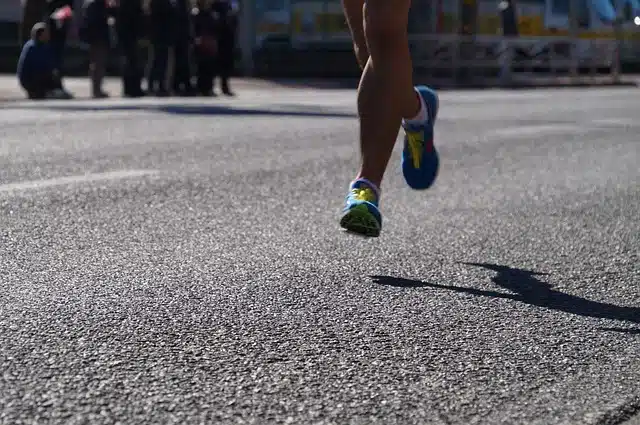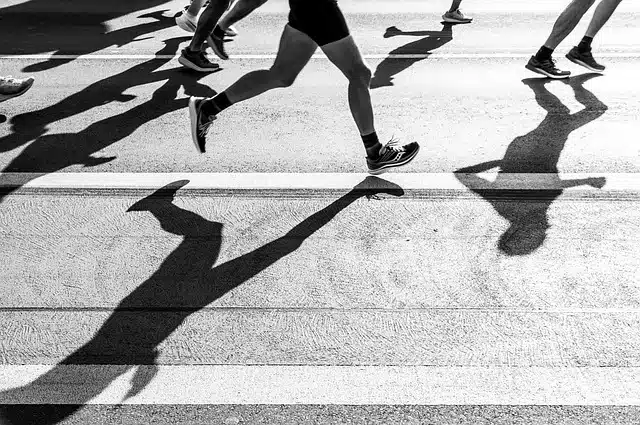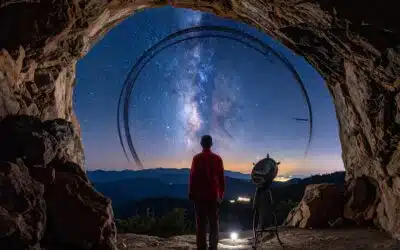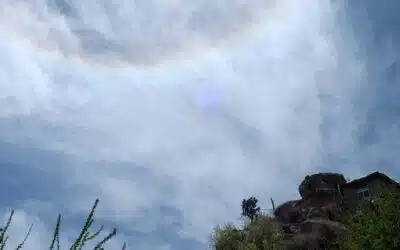Nenikekamen!
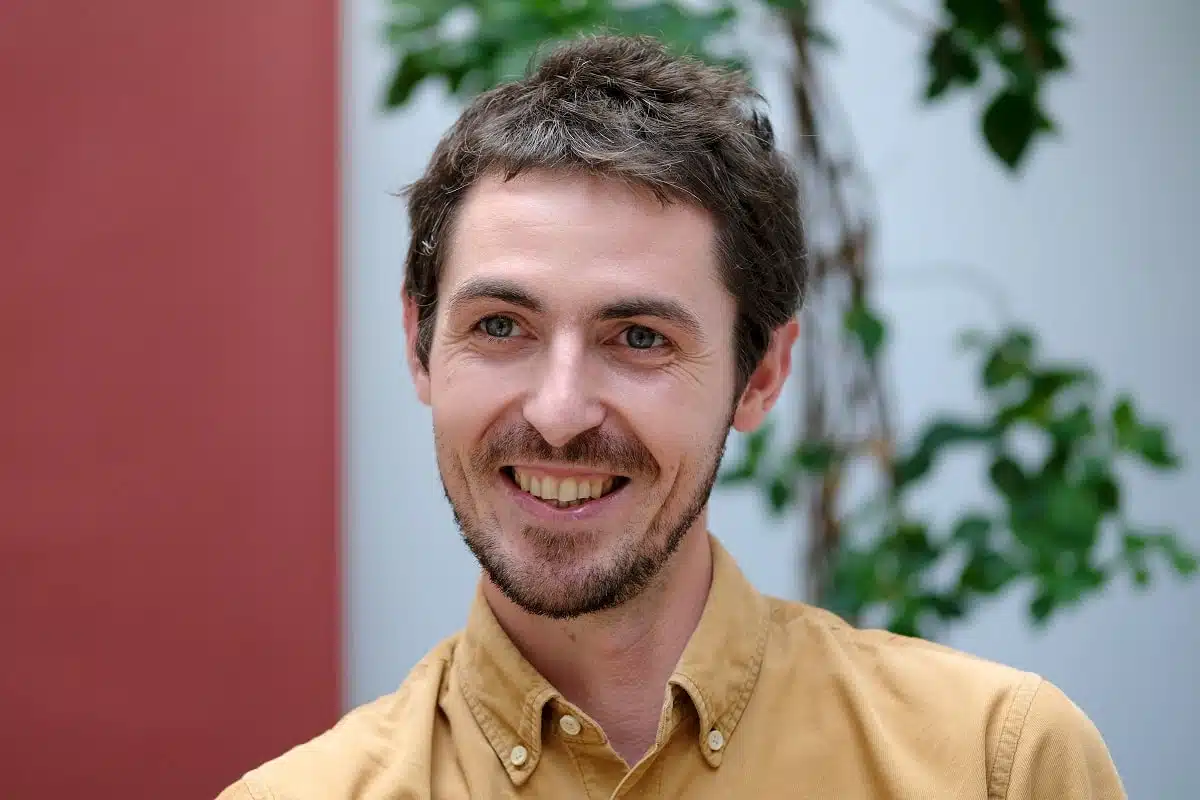
Written By Grégoire Langouet
Blog | Daily Life Testimonials | Dzogchen Testimonials | Reflections on life | What about me?
With “Nenikekamen!” Grégoire compares the marathon, the flagship event of the Olympic Games, to the Dzogchen path.
Series: Summer 2024
Nenikekamen !
After the grand opening ceremony of the Olympic Games – sounds, beams and fluorescent lights -, we jumped right into one of the flagship events of the Summer Olympics: the marathon. This event is so important that it has existed since the very first edition, in 1896 on Mount Olympus… Oh no, sorry, there’s been some confusion! When I hear “Olympic Games”, I immediately think of ancient Greece, with its feasts, sacrifices to the gods and chariot races. I’m getting off track already… but not that much, because it was in Greece that the first modern Olympic Games were held; not in Olympia this time – from where the famous flame is still lit – but in Athens. And it was precisely between Marathon and Athens that the first “marathon” took place. Phew, we’re back on our feet – and we’re going to need them to run!
Legend has it that a messenger ran the forty kilometers separating the two cities to deliver a good news – a military victory for the Greeks over the Persians. The poor man died, exhausted, after announcing the victory: “Nenikekamen!” (νενικήκαμεν), “We are victorious”.
Then it’s off to victory! On your marks…
“There is no longer any goal nor competition; no race nor runner; no end nor beginning. Nowhere to go, because nowhere to start from – without even any direction!”
Like at the beginning of the Dzogchen preparatory path, everyone jostles for position at the starting line. I’m elbowing some of my neighbors, but we’re also cheering each other on: “Don’t worry, it will be fine. I know someone who did it. And it went really well”. Then it’s finally time!
I set off, warmed up and found my place – each of us on his own way; with my own shoes and socks, shorts and lucky T-shirt – my best cap if needed -, favorite energy drink and protein cereal bars. So we’re off to a good start, and we’re just getting started!
Although I seem to be running alone, as on the Dzogchen path, I’m well surrounded. There are, of course, all the people who have helped me: my coaches, my parents, my friends, and so on. Then there are all the other marathon runners who are moving in the same direction as me; you can feel the pull of this coordinated movement. And then there’s the public, cheering us on as we go by, and sometimes dreaming of being one of us.
The path is long; any encouragement is appreciated; a bottle of lemon water or a sponge full of cool one – for our burning skin, dripping with sweat. And as on the Dzogchen path, every gesture counts.
The race goes on. I’m off to a good start. The first fifteen minutes are the most difficult. The body has to warm up. As with the preliminary practices, it is laborious once the candid enthusiasm of the start has subsided. Determination, stamina, patience – these are some of the qualities we have to develop.
Once we pass the fifteen minutes mark, we enter a more stable phase, one that is likely to last – cruising speed engaged. Of course, it won’t be a smooth ride, and other obstacles will arise. But the hardest part is over. From now on, we have to hold on and keep going. We made a commitment; let’s keep it. We’ll go all the way – just as on the Dzogchen path. So let’s keep going!
I tune my body, my breath and my mind. There’s no question that my mind goes to the right, my legs go to the left, and my breath goes up into the sky. I have to synchronize everything; hold everything together – under the yoke of the mind – with aspiration and determination – space and relaxation. Thoughts are absent. We’re focused on our goal: to get there as quickly as possible… but there are still twenty kilometers to go. Let’s be patient – like on the Dzogchen path.
My legs are heavy, my feet are swollen, my heart is beating fast. My breathing is now well synchronized, no need to think about it. A long inhale, an even longer exhale, a long inhale, and so on. It is as if everything is falling into place, naturally. Ten kilometers to go. I stay focus, striving for my victory, for victory. The course is full of surprises until the end – only three kilometers to go -, like on the Dzogchen path.
Finally, I cross the finish line, after so much hardship, so much suffering. Phew! HA!
What had possessed me to undertake such such an ordeal? But what a joy at the end! Happy and exhausted at the same time, suffering and joy are mixed together. I let myself fall to the ground. Everything relaxes, what a relief. Lying on the ground, eyes turned skyward – all tension gone. Here I am at last.
But is this the ultimate Victory? Maybe not, my coach tells me…
I thought I had reached the end of the Dzogchen path, but I learn that this is only the end of the beginning; the preliminary practices, the preparation for Dzogchen itself. But the hardest part is over, my trainer reassures me. Just a little more effort… Now the real race for the real victory begins – the motionless race, the main practice of Dzogchen.
There is no longer any goal nor competition; no race nor runner; no end nor beginning. Nowhere to go, because nowhere to start from – no direction at all! It’s all there: the ultimate sphere of Reality – stillness and infinite speed.
So it took a lot of effort to get nowhere. Happy paradox! Running like a mad man and exhausting myself to… let myself go, simply, naturally. Now I can relax – and enjoy. Then the real contemplative practice begins. On your marks… From now on, I’ve made up my mind: the next marathons I’m going to run… on TV!
You can read the first article in the series : Opening ceremony
More Posts
Losar!
In "Losar!", Paul offers us a reflection on repeating cycles and the subtle link between tradition, humanity and the universe.
Being Your Own Master
Relationship with a master requires discernment. “Being your own master” offers insights into understanding devotion and avoiding pitfalls.
Phenomena
"Phenomena" is the second entry in a new category designed to improve understanding of essential Dzogchen words and concepts.

